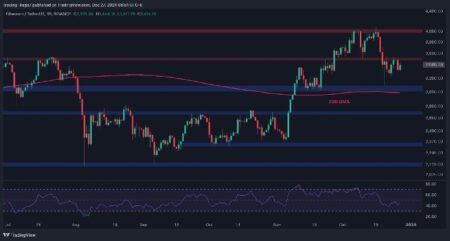Eight newly approved spot ether (ETH) exchange-traded funds made their debut in the U.S. this week, but they are currently unable to generate income for investors through staking their ETH. This lack of staking income represents a disadvantage compared to directly holding the cryptocurrency. However, issuers are hopeful that regulators will eventually allow staking in these products. Despite this limitation, the ETFs saw significant success in their initial days, with BlackRock’s products receiving almost $800 million in deposits within the first two days.
Several issuers initially planned to stake ether for yield in their ETFs, but had to remove this feature at the request of the U.S. Securities and Exchange Commission (SEC). The SEC argued that staking could potentially violate federal securities laws as it constitutes unregistered securities offerings. While there is hope that the regulatory landscape could change with the new administration, discussions about allowing staking in the ETFs are not currently active. BlackRock, the world’s largest asset manager, did not apply for staking in their application, while others like Fidelity and Franklin Templeton did.
Industry experts believe that staking within spot ether ETFs is a matter of when, not if, but the timing could be influenced by political factors. Former President Donald Trump has garnered support from many leaders in the crypto industry due to his recent endorsement of the space. A Trump administration is seen as potentially more crypto-friendly, which could accelerate the timeline for allowing staking in ETFs. Without regulatory clarity, ETF issuers may have to wait for a comprehensive crypto regulatory framework to be put in place, which could take significantly longer.
Franklin Templeton, along with Fidelity, was interested in incorporating staking into their ETFs, but started without this feature to make the approval process easier. The decision to launch unstaked versions was seen as the path of least resistance, as it simplified the process and reduced execution risk. Whether staking will be implemented in the future is tied to regulatory clarity and the evolving landscape of crypto regulations. If regulations change, asset managers like Franklin Templeton will be prepared to adapt their products accordingly to incorporate staking capabilities.
Ultimately, the ability to stake within spot ether ETFs is dependent on regulatory changes and the evolving crypto landscape. While issuers remain hopeful that staking will eventually be allowed in these products, the current regulatory framework poses challenges. However, with potential political shifts and increasing interest in the crypto industry, there is optimism that staking income may become a feature of spot ether ETFs in the future. As the industry continues to advocate for regulatory clarity and education, investors may have the opportunity to benefit from staking capabilities in these innovative investment products.



















